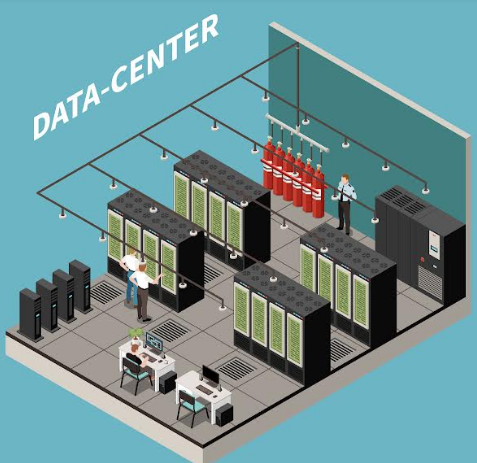Traditional data centers have long been the cornerstone for securing sensitive information, such as personal data, medical records, and financial details. However, as applications become more dispersed and data demands grow—particularly with the rise of AI—businesses are increasingly turning to hybrid data center strategies to stay ahead. By combining the reliability of on-premises infrastructure with the flexibility of cloud services, organizations can optimize their IT environments to meet evolving business needs.

Why Choose Hybrid Data Centers?
1. Enhanced Flexibility and Scalability:
Hybrid data centers provide businesses with the ability to adjust their IT resources on the fly, making them ideal for handling fluctuating workloads and seasonal demand spikes. For instance, a retail company can quickly scale up its cloud resources during peak shopping seasons, ensuring a smooth customer experience without the need to overcommit resources throughout the year. This approach not only optimizes performance but also reduces costs by aligning resource allocation with actual demand.
2. Adaptable Security and Compliance:
In industries where data security and regulatory compliance are paramount, hybrid data centers offer the best of both worlds. Organizations can keep sensitive data on-premises to maintain control and meet regulatory requirements, while leveraging the cloud for data analytics and less critical information. This strategy allows businesses to adapt their infrastructure as needed without compromising on security or compliance.
3. Cost Optimization:
Managing costs is a top priority for businesses, and hybrid data centers offer a strategic advantage. By utilizing multiple cloud service providers, organizations can take advantage of competitive pricing to optimize expenses. Additionally, the ability to switch to more cost-effective cloud storage options can lead to significant savings, making hybrid data centers a financially savvy choice.
4. Resilience and Business Continuity:
Hybrid data centers bolster business continuity by providing robust redundancy and failover mechanisms. By replicating data and applications across both on-premises and cloud environments, businesses can minimize downtime in the event of a disruption. This resilience is crucial for sectors like retail, hospitality, and healthcare, where uninterrupted access to data is essential for operations.
5. Tailored Storage Solutions:
A hybrid approach to data storage allows organizations to fine-tune their infrastructure to meet specific needs. By combining HDDs and SSDs, businesses can ensure that their storage resources are allocated optimally. For example, Western Digital’s Ultrastar DC HC690 HDD, with its 32TB capacity, is an excellent option for hyperscale cloud and enterprise data centers, offering the flexibility to store vast amounts of data efficiently.